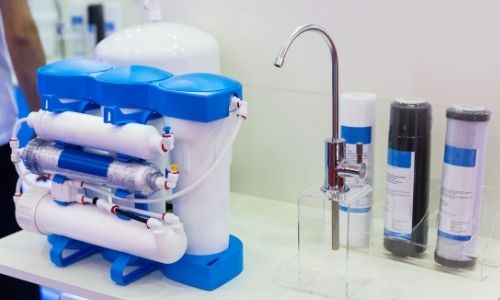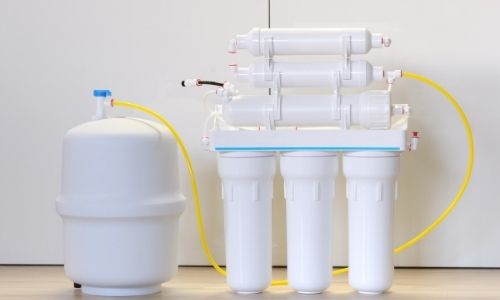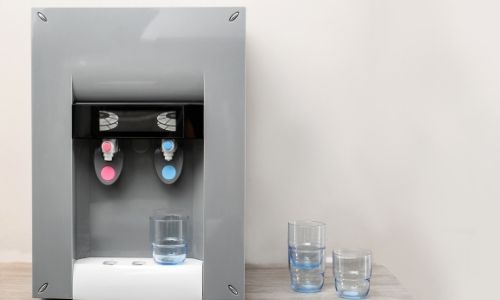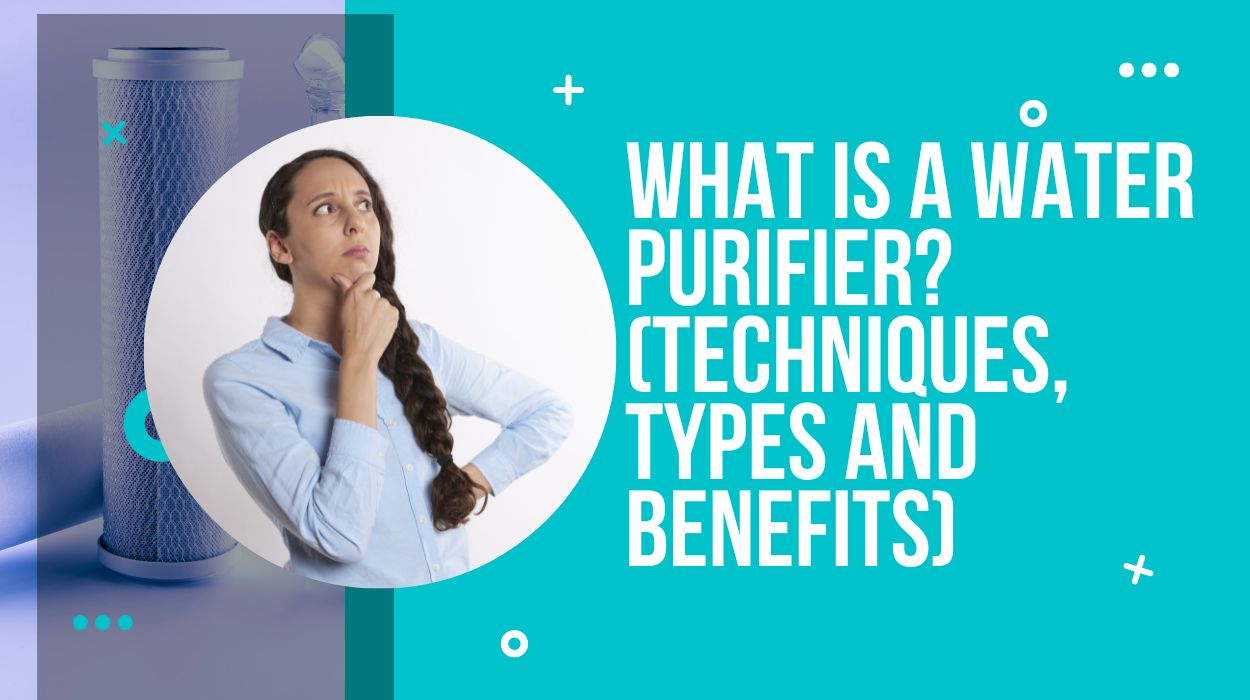Water spans 71% of the earth’s surface, which may seem like a lot, but do you know how much drinking water we have access to? – only 1.2%.
Population growth, industrial development, and environmental deterioration add to the impurities of water, making it more difficult to obtain clean water. Given this condition, Water Purifiers become a must for obtaining clean drinking water. But, what are water purifiers? – If that’s your question, we got you.
This article is a complete guide on water purifiers covering what a water purifier is, its types, different purification techniques, and its benefits.
What is a Water Purifier?

A water purifier is a device that filters sediment and impurities from water, making it cleaner, tastier, and safer to drink. We can use purified water for various activities such as bathing, cooking, and dish-washing. Nonetheless, water purifiers are also known for eliminating biological pollutants, like bacteria and viruses, and removing toxic minerals from the water.
Now that we know what a water purifier is, let’s learn the different water purification techniques.
Types of Water Purification Techniques
All water purifiers use a water filter to purify water. Different water purifiers use different types of filters. There are six different types of water filters available in the market:
1. Active Carbon Filter
Active Carbon Filters have charcoal that removes soluble gases like chlorine, carbon monoxide, nitrogen, and ammonia, as well as organic matter like dead algae, leaves, or any other dead thing that has been washed into a body of water.
2. Biosand Filters
Biosand filters are concrete or plastic boxes packed with sand and gravel layers. Biosand filters filter tainted water for pathogens (microorganisms that make humans sick) and suspended particles.
3. Reverse Osmosis Filters
A reverse osmosis (RO) system provides multi-stage water filtration by combining active carbon and particle filtration. The tap water is forced to travel through a polymer film with tiny holes, which removes minerals and microorganisms from the water. The pollutants are subsequently flushed out of the system through an exit pipe. Although a RO water purifier improves water taste, it isn’t easy to guarantee that the water is entirely safe. RO filters are recommended in areas where the water has a high concentration of dissolved minerals.
4. Ultra Violet (UV) Filters
UV Filters use UV light (Ultraviolet Light) for filtration. Ultraviolet light destroys bacteria and other germs by attacking the DNA in their cells. This filter effectively removes all the harmful pathogens from the water. However, UV filters cannot remove suspended particles, chemicals, bad taste, smell, or color. Nonetheless, UV Filters can remove up to 99 per cent of pesticides.
5. Ceramic Filters
Ceramic Filters are hollow cylinders composed of clay mixed with flammable materials such as sawdust, rice husks, or coffee husks. The microscopic pores of these filters drain out bacteria from the water, making it clean and hygienic.
6. Ion Exchange Resins Filters
In ion-exchange filters, water is pumped through resins. The minerals from water are absorbed, and the present salts are sucked up, softening to water. However, these filters may de-mineralize the water.
Now that we have learned the different types of filters water purifiers use, it’s time to know the different available water purifiers.
Types of Water Purifiers

There are different types of water purifiers that provide different benefits. However, one common thing among them is that they purify water, providing us with safe and clean drinking water.
1. Gravity Water Purifier
Gravity water purifiers are non-electric and are portable. These purifiers use pressure filtration techniques to purify water.
2. UV Water Purifier
UV Water Purifier uses Ultraviolet rays for water purification. These purifiers work faster compared to others. However, UV Water Purifiers do not remove sterilized microorganisms dissolved organic and inorganic particles.
3. RO Water Purifier
RO Water purifiers are effective and fast at filtering and purifying water. RO Water purifiers are known for reducing the hardness of the water.
You can choose to buy any of these water purifiers depending on your needs. However, why should we use a water purifier? Hold on, because now we will learn the benefits of water purifiers.
Benefits of Water Purifier

1. Removes Harmful Bacteria and Other Disease-Causing Microorganisms
Purified water removes contaminants in drinking water and provides better water quality and taste. Pathogens such as bacteria, viruses, and other parasites that cause disease in humans are commonly found in tap water. Cholera, diarrhea, and typhoid are a few deadly water-borne illnesses that might be caused due to these pathogens. Thus, purified water will keep you and your family healthy and prevent you from catching these harmful diseases.
2. Provides Better Health
Purified water provides better health to the community. Consuming filtered water has been linked to several health advantages, including improved digestion, renal function, healthier skin and hair, and an overall sense of well-being.
3. Retains Healthy Minerals
A water purifier can remove hazardous impurities from drinking water while leaving behind healthy mineral deposits that are good for your body and balancing the pH of the water.
Author’s note: We are sure you are ready to buy a water purifier on learning its benefits. So here’s a list of things you can consider before selecting a water purifier
- Know the source and the quality (Hardness, TDS, Salinity) of your water.
- Consider water purifiers’ storage tank capacity.
- Search for the available purifiers and compare their specifications.
You May Also Like To Read:
Which Water Purifier Is Best For Health?
RO Vs UV Vs UF: The Difference Between Water Purifiers
Water Filter Vs. Water Purifier: What Is The Difference?
Conclusion
We don’t know the type of water we drink every day. Drinking unclean and unhygienic water makes us prone to several diseases. Water purifiers work at making our drinking water clean, pure, and hygienic. Nonetheless, water purifiers also ensure that the water smells better and tastes better. Hence, water purifiers in every household are a must.
Drop-in a comment and let us know what type of water purifier you use.


